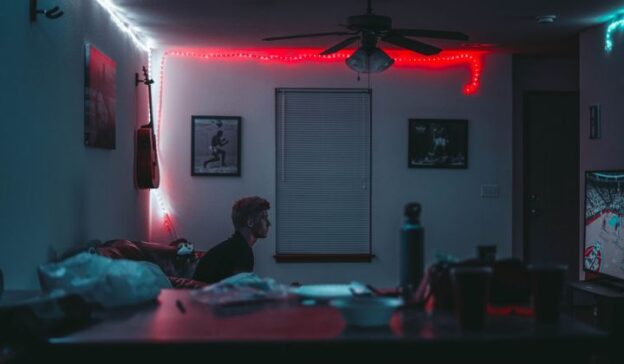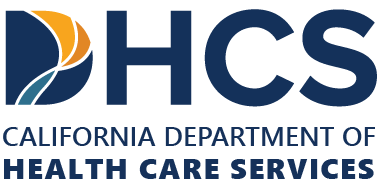It’s a situation no parent wants to face, but one we hear about all too often: you’ve found drugs in your son or daughter’s room. What do you do next?
As a certified Alcohol and Drug Counselor who has been working with young adults and teenagers for many years, it’s a situation I am very familiar with. In fact, finding drugs or alcohol in a child’s room is often the reason parents reach out for help in the first place.
We’ll elaborate on each point, but just to lay it out, we believe there are a few steps parents should take relatively quickly once they find drugs in their son or daughter’s room:
If you find drugs in your child’s room, the most important things to do next are,
- Take a deep breath
- Gather information through observation
- Have a discussion with your son or daughter
- Gauge your child’s responses
- Seek help from a professional specializing in substance use
- Do not ignore it
Discovering that your son or daughter might be doing drugs is a situation that no parent ever wants to face.
In the next few paragraphs, I will go through each of these steps and follow up with some things to avoid as well.
1. Take a deep breath
I mean this both literally and figuratively. Discovering that your loved one may be getting high is a scary proposition. It’s a tough emotional burden to bear, especially when you don’t have all the information yet.
Our minds tend to go to the worst places when we get this kind of news. While I do not intend to downplay the seriousness of finding drugs in your son or daughter’s room, I do believe that one of the most helpful things in the very beginning is to relax and breathe.
People recover from drug abuse all the time. We see it every day (literally) in our teen substance abuse program.
So: a couple of things to keep in mind as we go through the next few steps are:
- It’s not necessarily the end of the world
- It doesn’t mean your child is ruined
- It’s not your fault
- There are few logical “next steps” that can truly streamline the process of determining if your child needs help, and if so, what kind of help
So … as much as possible, relax. Take a deep breath, and know that good, high-quality help is available and within reach.
2. Gather information
The first action step we want any parent to complete when finding drugs in a son’s room is to gather as much information as possible. While it’s tempting to jump straight to things like confrontations and drug testing your teen, much of this initial step can be done by a simple observation:
Important things to observe
- What kind of drugs did you find? If you’re having trouble figuring it out, please reach out to a substance abuse counselor for help with this. Different drugs come with different inherent risks, some of which carry greater risks in the short term. Note, while we don’t condone any drug use during the adolescent and young adult years, there are some drugs that would inherently cause us greater immediate concern than others.
- What quantity of drugs did you find? Though they are far from conclusive evidence, we would typically be more concerned if you found a high quantity of drugs (or paraphernalia), or if you found multiple kinds of drugs. They may be red flags that your child may have passed the experimentation phase.
- Where did you find the drugs? Were they hastily stashed somewhere out of sight? Or were they hidden somewhere that took planning and effort? This can tell you how invested your child is in keeping their use a secret.
- Was there any paraphernalia with the drugs? Having paraphernalia points to consistent use as well as planned future use, which is a huge red flag.
- Has this happened before? If it has happened more than once, your child likely isn’t experimenting with drugs at this point. Even being caught for a second time is an indicator of a larger problem.
- Is your child currently intoxicated/high? If you’re worried about their immediate health or safety, go to a hospital (especially if you do not recognize the drugs or if your child isn’t coherent enough to describe what they took). It is far better to be safe than sorry in this regard.
3. Have a discussion with your son or daughter (and ask these key questions)
There are a few key pieces of information that can be very helpful in determining next steps. Below are a few questions to ask.
One thing to note: we often talk with parents about “staying on your kid’s side.” I would remind everyone who is about to confront and / or ask their child about potential drug use to walk into the conversation willing to be loving and logical. It’ is very easy for these types of conversations to turn into fights. If you’d like help with some specific direction on what to say and how to ask, please contact a substance abuse counselor first.
That being said, if you’re confident that you can have a conversation with your teen, here are a few pieces of information that are very helpful in providing recommendations to parents for what to do next:
- Where did they get the drugs? This is important not so that you can find whoever provided the drugs, but so that you can see if they sought it out, if they have a dealer already, or if their friends are providing drugs.
- How much/ how often are they using? This will let you know the extent of the problem. Finding out how long they’ve been using for is also important. The longer they’ve kept their use a secret, the more concerning the issue is. For example, a young person who has kept their drug use hidden for 2 years has become very comfortable living dishonestly and is very likely to have a difficult time stopping.
- Why are they using? Is it with friends, alone, for fun, to deal with emotions? Using alone is a huge red flag for substance use problems. Using to cope with any emotional issues is also a red flag, as any drug use it likely to make matters worse over any considerable period of time.
- How do they perceive the harm? You may need to “read between the lines” on this one, as most drug users won’t come out and say it. Does it seem as though they view their drug use as a problem? Do they see it as destructive, or do they see it as “no big deal?” This is important to gauge, as many young people are being bombarded with false information about the harmfulness of cannabis as well as other drugs and do not think there will be consequences.
- Are they willing to stop? An unwillingness to stop is an obvious red flag for a substance use issue.
4. Gauge your son or daughter’s responses
One of the biggest signals of how far a drug problem has progressed is how the user responds to being caught:
- A young person who is very early on in their drug use will often come clean right away, show remorse, and accept the consequences. If they simply made a mistake, they will recognize it and cease the behavior.
- A young person who has moved past the initial stages of drug use, however, will often try to rationalize and justify their drug use, often being very manipulative and dishonest throughout the process.
An important thing to remember in this part of the process is to trust your gut. In my years of working with parents, I can recall countless examples of parents reflecting back and saying “I knew that didn’t make any sense!” or, “something just seemed off with him.”
If it seems like your son or daughter’s explanations or responses don’t make sense, it’s most likely because they actually don’t! Drug users are often very adept at convincing their parents to ignore their better judgment.
Classic red flag statements for dishonesty are:
- “I’m holding it for a friend”
- “It was my first time using ever”
- “I have anxiety and need it”
- “All my friends are doing it”
- “You guys are over-reacting”
- “I am doing all this other stuff you guys want me to do so get off my back”
- “If you let me use at home I wouldn’t have to go behind your back”
- “You made me this way”
- and many more
Overall, pay attention to their responses. You know your kids better than anyone, so trust your gut and use that intuition to help you in the next step.
5. Seek help from someone who specializes in substance use, preferably with young people
After you have gathered all the above information, we strongly recommend that you follow through and seek the opinion of an outside professional. We recommend this for a few reasons:
- The professional will have expertise in deciphering the signs of drug use in teens and young people.
- The professional won’t have the same emotional reactions to your family’s situation, which means they will have an easier time looking at the situation objectively
Your child may simply have gotten mixed up with a bad crowd or made a mistake, or they could have the beginnings of a serious problem that requires intervention in order to avoid serious consequences and mental health implications down the road.
Additionally, not every substance abuse evaluation necessarily leads to treatment.
Speaking from experience here: our recommendations range from “watch and wait” to “he needs counseling right away,” and everything in-between.
Making that distinction is not as easy as it sounds for parents. Find a professional who understands both substance use disorders and adolescent treatment. Use the information that you’ve gathered to inform said professional and have them evaluate the situation. Not only does it allow you to get a second opinion on your child’s health, but it also sends a very strong message that drug use will not be tolerated in the household.
6. Do not ignore it!
This is my final suggestion, and maybe the most important: Don’t ignore finding drugs in your son or daughter’s room. Just the simple fact that they brought it into the house suggests a pattern of continued use. Someone who has only done drugs a couple of times or only does them at parties typically won’t bring drugs into the home.
I talk with parents often who brushed off seemingly small instances only to realize later they were indicators of a much bigger problem. I encourage parents to think of it like they would if they thought their child had a bad cough: it could be nothing, or it could be a serious health problem, and anything in-between.
Consulting a professional doesn’t mean anything other than you admit it’s better to be safe than sorry. Substance abuse disorders start off seemingly mild and almost never get better without help. You wouldn’t say, “It’s just a little bit of cancer,” so do not ignore drug use with a child.
If you find drugs in your child’s room, you’re not the first. Countless families run into this every year. Relax, and take the next steps. As I mentioned earlier, it’s important to breathe, relax, and take the next logical step.
You love your child – that much is obvious. All that’s left to do is take the necessary steps to determine the appropriate course of action for your family.






